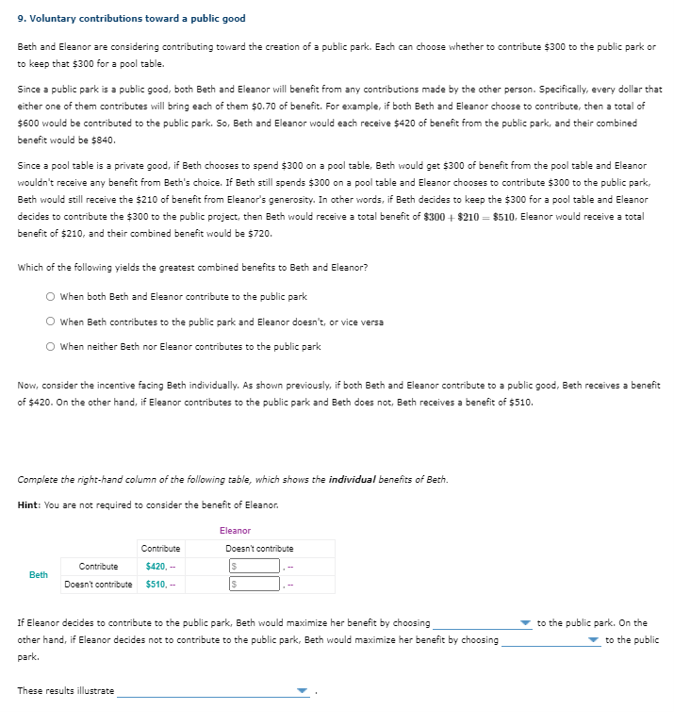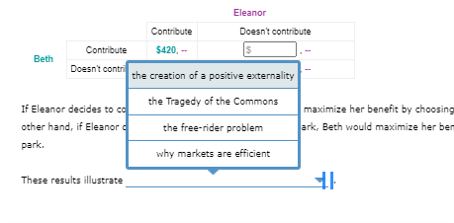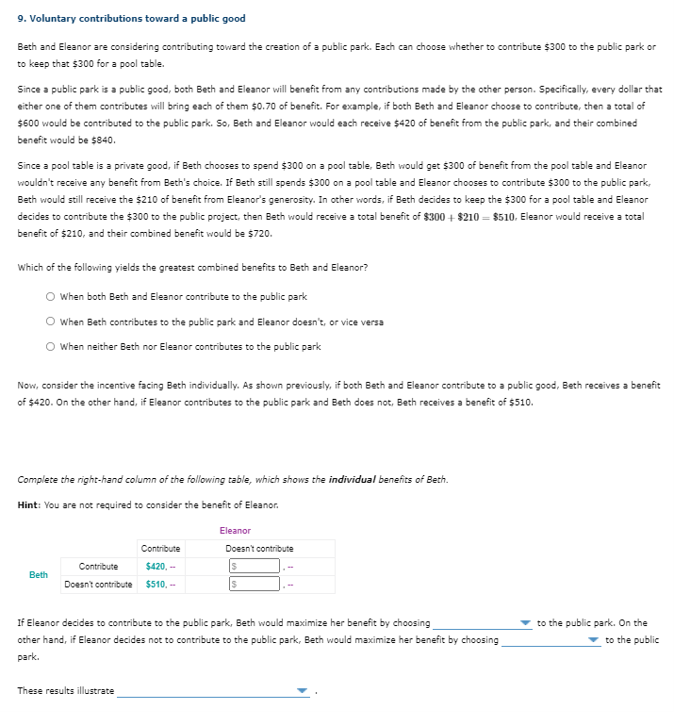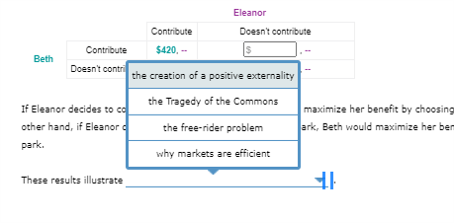



Help with this question??? Thank You! (Please answer specifically, thank you!) (You can zoom in the picture)
9. Voluntary contributions toward a public good Beth and Eleanor are considering contributing toward the creation of a public park. Each can choose whether to contribute $300 to the public park or to keep that $300 for a pool table. Since a public park is a public good, both Beth and Eleanor will benefit from any contributions made by the other person. Specifically, every dollar that either one of them contributes will bring each of them $0.70 of benefit. For example, if both Beth and Eleanor choose to contribute, then a total of $600 would be contributed to the public park. So, Beth and Eleanor would each receive $420 of benefit from the public park, and their combined benefit would be $840. Since a pool table is a private good, if Beth chooses to spend $300 on a pool table, Beth would get $300 of benefit from the pool table and Eleanor wouldn't receive any benefit from Beth's choice. If Beth still spends $300 on a pool table and Eleanor chooses to contribute $300 to the public park, Beth would still receive the $210 of benefit from Eleanor's generosity. In other words, if Beth decides to keep the $300 for a pool table and Eleanor decides to contribute the $300 to the public project, then Beth would receive a total benefit of $300 + $210 = $510. Eleanor would receive a total benefit of $210, and their combined benefit would be $720. Which of the following yields the greatest combined benefits to Beth and Eleanor? O When both Beth and Eleanor contribute to the public park O When Beth contributes to the public park and Eleanor doesn't, or vice versa O When neither Beth nor Eleanor contributes to the public park Now, consider the incentive facing Beth individually. As shown previously, if both Beth and Eleanor contribute to a public good, Beth receives a benefit of $420. On the other hand. if Eleanor contributes to the public park and Beth does not, Beth receives a benefit of $510. Complete the right-hand column of the following table, which shows the individual benefits of Beth. Hint: You are not required to consider the benefit of Eleanor. Eleanor Contribute Doesn't contribute Contribute $420. = Beth Doesn't contribute $510. -- If Eleanor decides to contribute to the public park, Beth would maximize her benefit by choosing to the public park. On the other hand, if Eleanor decides not to contribute to the public park, Beth would maximize her benefit by choosing to the public park. These results illustratefit by choosing to the public park. On the ximize her ben to the public to contribute not to contributeby choosing to the public park. On the ize her benefit by choosing to the public not to contribute to contributeJOU83 3 Contribute Doesn't contribute Contribute $420. S Beth Doesn't contr the creation of a positive externality the Tragedy of the Commons If Eleanor decides to co maximize her benefit by choosing other hand, if Eleanor c the free-rider problem ark, Beth would maximize her ber park. why markets are efficient There results illustrate














